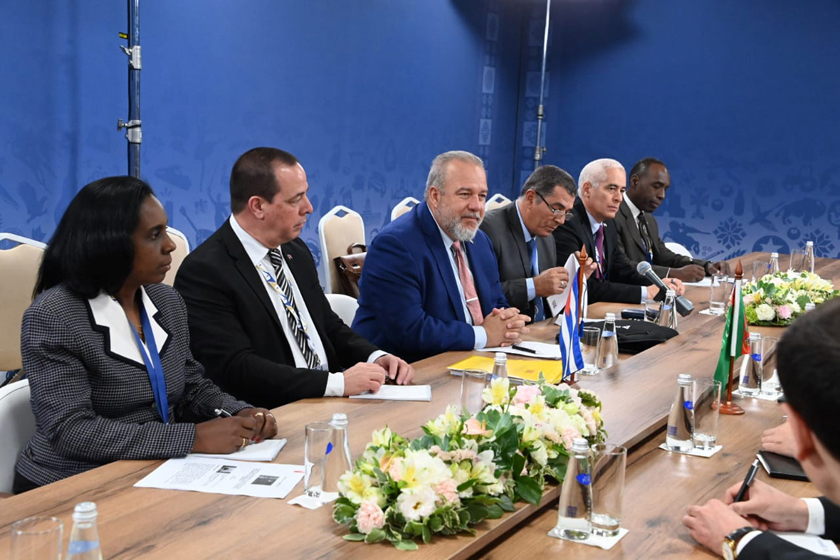The Cuban revolution may now be more than fifty years old and the ideological ties that have bound the two countries across the decades may have become diluted in the face of the harsh global economic realities that have caused both countries to reset their relations to, increasingly, embrace the ‘hard edge’ of economic realities. There is, however, more than sufficient evidence that relations between Havana and Moscow have held firm, the two having been able to retain the ideological ties that bind them whilst being mindful that it is, after all, developmental considerations that drive the growth of countries. Tough economic times and continued pressure from the west have kept Havana anchored to Moscow. When, like now, Cuba’s economic condition demands some kind of remedial intervention, it is to Moscow that it looks. Earlier this month, Russian President Vladimir Putin appeared to find time away from his preoccupation with its military ‘adventure’ in the Ukraine (which is becoming, increasingly, a challenge for Moscow) to meet with a delegation of Cuban officials that had journeyed to Moscow to engage the authorities in talks that would lead to outcomes to bring a measure of economic support to the struggling Cuban economy. That this happened amidst what is proving to, arguably, the biggest challenge to Putin’s tenure as Russia’s President is a profound pronouncement on the strength of the ties that bind Moscow and Havana.
Nor was the visit simply a ‘meet and greet’ affair. At the end of the exchange between the Cuban delegation and the Russian President – what an Associated Press report described as “a series of agreements” on the supply of oil, the sale of wheat, and the resumption of flights between Moscow and Havana – Cuba, reportedly, used the visit to Moscow headed by that country’s Prime Minister, Manuel Marrero to reaffirm its alliance with Moscow. A Cuban official proffered the comment that the visit not only realized “progress in the high level political dialogue”, but that ‘dialogue’, the official is quoted as saying, derived from the fact that both nations are strategic allies and are under the effect of unilateral coercive measures. It was, however, economic realities that took the Cuban delegation to Moscow at what would have been a less than propitious moment for the Russians, Havana itself reportedly admitting that “the series of agreements” with Moscow were being considered key for Cuba. Washington has markedly stepped up economic and political pressure on a Cuban political leadership that has, for years, been compelled to manage what has, at times, appeared to be a threadbare economy. If the AP report didn’t delve too deliberately into the details of the agreement signed following Cuba’s visit to Moscow or, indeed, those signed during an earlier visit by Russian officials to Havana, references to “continuing supply of fuels and lubricants” during a period when energy scarcity has been Cuba’s most demanding economic challenge and “the renewal of flights between Russia and Cuba”, starting July 1, are takeaways from the visit to Russia that will provide some measure of comfort to Cuba in a region which remains largely ideologically tied to the United States and economically dependent on the west.








